Offset Printing: How do PMS Colors differ from the CMYK Printing Process?
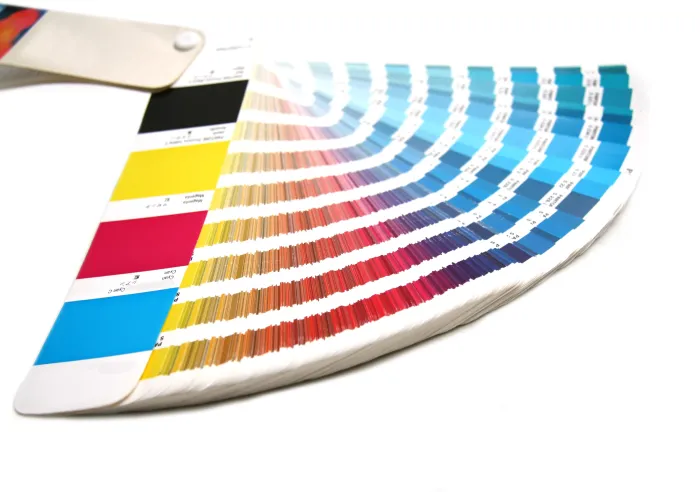
estimated reading time: 4 minutes
Offset Printing is a time-tested printing method which has
widespread use in the commercial printing industry. It is very cost-effective for
printing medium to large production runs.
An offset press uses printing plates but does not transfer ink directly from the printing plate to the paper. The ink on a printing plate is first transferred to a rubber
cylinder, which then transfers the ink to the paper. The ink application being
"offset" rather than transferring directly to the paper is the reason this printing
method is called Offset Printing.
Offset printing uses two main color systems to produce
high-quality images…the CMYK Process and PMS colors. This article explains the difference between these two color systems.
What is the CMYK Printing Process?
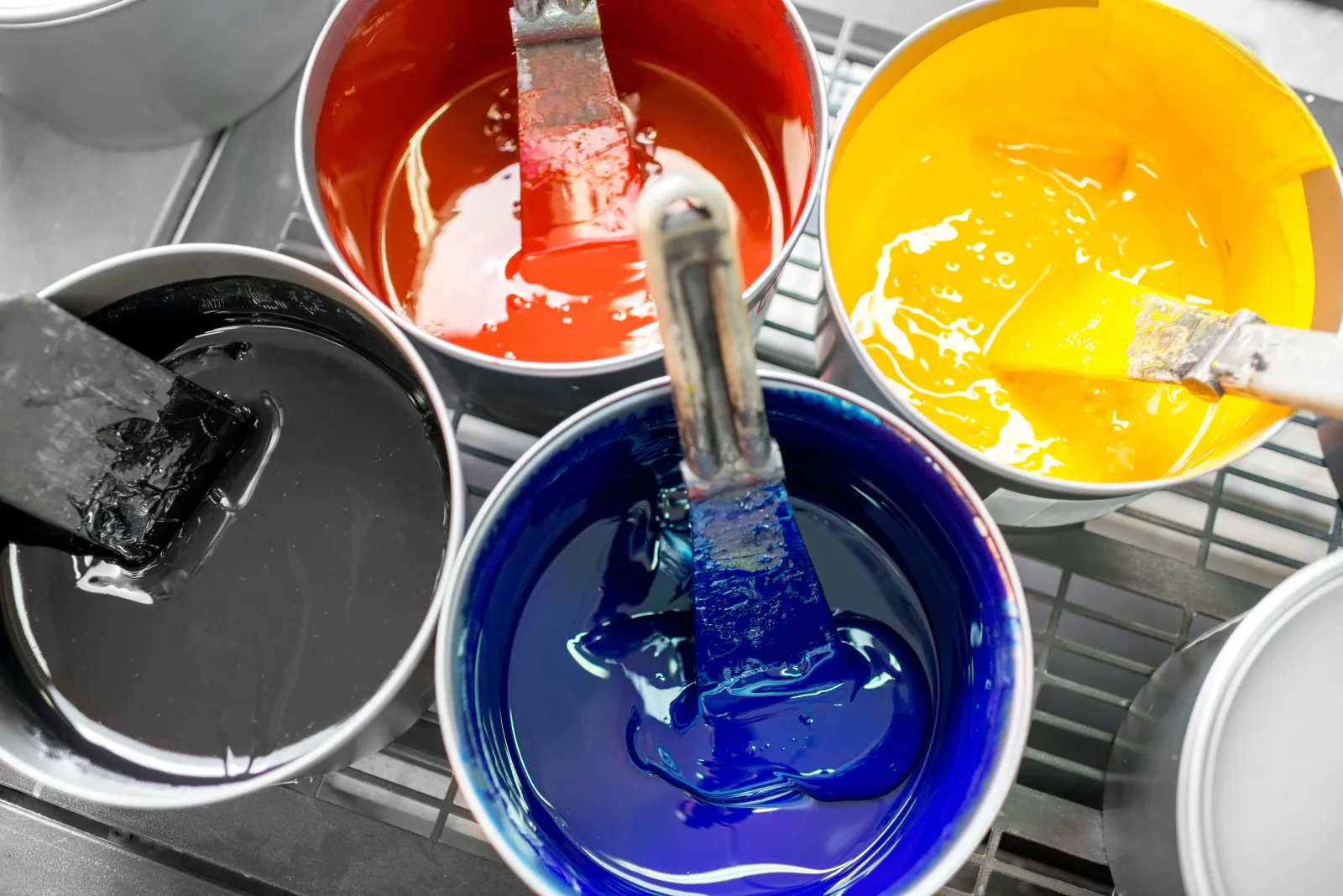
The vast majority of projects printed on an Offset press are
created with the CMYK printing process. CMYK stands for Cyan, Magenta, Yellow
and Key (Black), which are the only four ink colors used in this process. Each of
these four ink colors will have its own printing plate, so each color is
applied separately to the paper as it moves through the offset press.
The four CMYK ink colors are applied as tiny dots. The dots of each color in
the process overlap each other in succession. By printing the cyan, magenta,
yellow and black ink dots in various sizes, placements, and concentrations on
the paper, different variations of color are created. These color variations create
the vivid images we know as full-color printing.
If you look at CMYK offset printing under strong
magnification, you will actually see the individual color dots that
collectively create a full color image.
The CMYK printing process is referred to by many different names.
These include 4 Color Process, 4 Color Printing, 4CP, Full Color Printing, or sometimes
just Process Printing. Using only the four ink colors of cyan, magenta, yellow
and black, the CMYK process can produce about 16,000 colors.
However, there are still many colors the CMYK process cannot
accurately create. Though the CMYK process can approximate these colors, it
cannot reproduce them exactly. This is where PMS Colors play an important role.
What are PMS Colors?
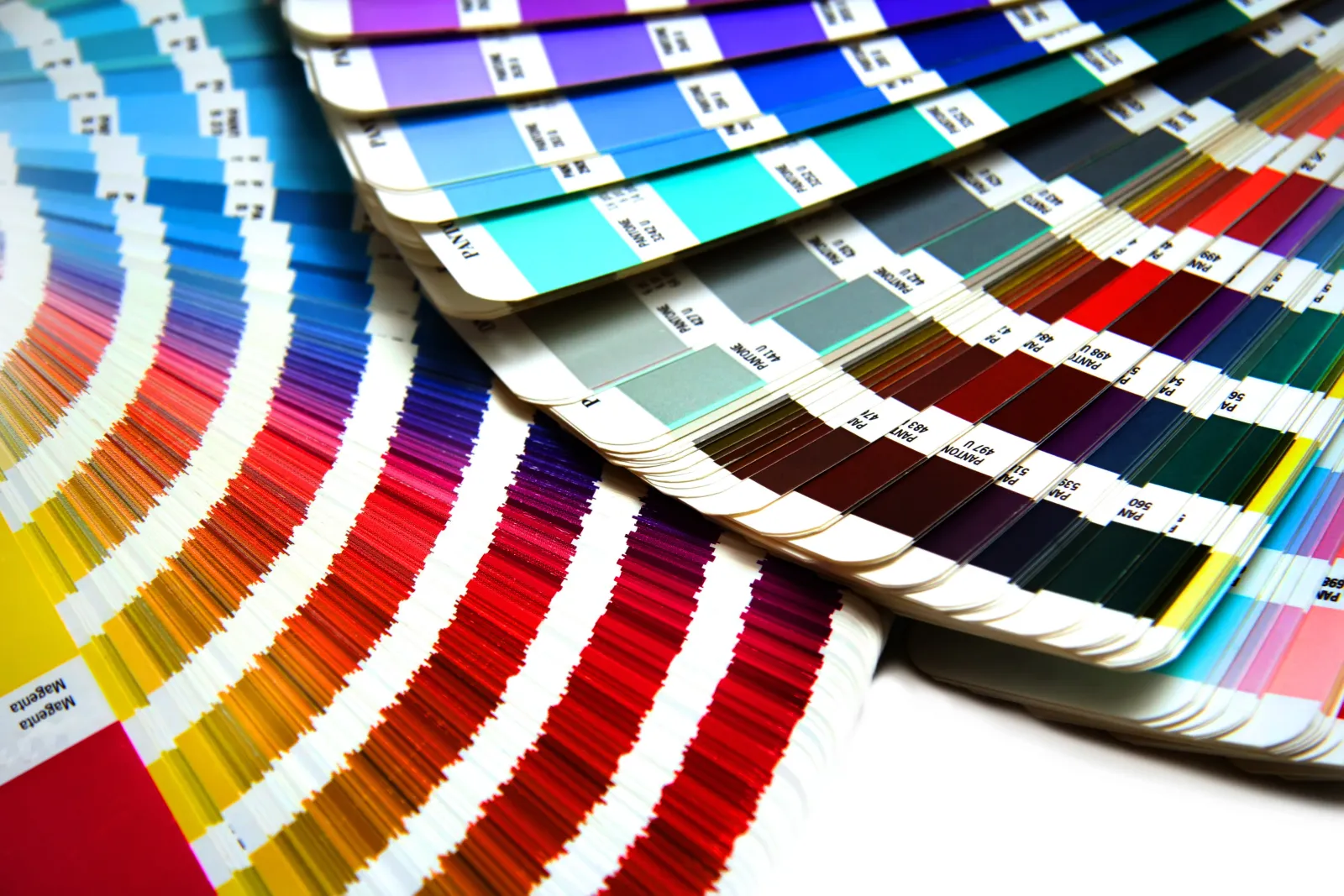
PMS refers to the Pantone® Matching System. The Pantone
Matching System, sometimes called the Pantone Color Match System, provides a
universal standard to ensure precise color matches. As long as the Pantone
formulas are strictly adhered to, the ink color will be consistently accurate regardless
of where the items are printed.
Currently, there are over 2,000 PMS colors. Commonly referred to as "Spot" colors, PMS colors for the printing trade are displayed in Pantone
guides which are used globally by commercial printers, graphic designers, and
marketing departments. The pages of the Pantone guide resemble the color swatch
strips you'd see in your neighborhood paint store.
Various editions of Pantone books are available to show the specific color
formulas, how the colors would appear on coated or uncoated paper stocks, and
the CMYK process equivalents that will simulate a given PMS color as closely as
possible.
Unlike colors created by the CMYK process, which are "mixed"
as dots on the paper as it travels through the printing press, each PMS ink
formulation is pre-mixed before it is applied to the paper. Also, PMS
colors are most commonly applied as solid colors. So if you examined a printed image made with a solid PMS color under
magnification, there would be no ink dots. There would only be solid color.
It is also worth noting that most Digital printing presses cannot accurately reproduce PMS colors. This means true PMS colors are not a suitable option for shorter production runs. However, the CMYK color system is used by both Digital and Offset presses, so CMYK printing is readily available for any size production run.
As mentioned earlier, the vast majority of color print projects are
produced entirely with the CMYK process. However, certain projects have a
strict requirement to use PMS colors. For example, many corporations use specific
colors for logos and other designs related to brand identity. These colors need
to be consistent across all forms of print media.
Some printed materials use PMS colors exclusively. This is
often the case for business cards, letterhead, and envelopes. Other projects,
such as full-color brochures and marketing pieces, might use PMS colors as a supplement
to the CMYK process…printing the majority of the piece as CMYK but adding one
or more PMS colors to select areas.
When it comes to color printing, Color Vision has
all your bases covered. We can produce projects using the CMYK printing
process, one or more PMS colors, or a combination of these two color systems. Give
us a call at 800-543-6299 and we'll be happy to discuss your printing needs.
Or, you can also submit a quote request by clicking here. As always, we look
forward to hearing from you!
Related Articles
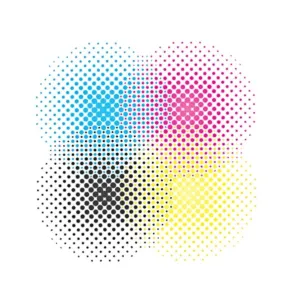
Commercial Printing: What does “Halftone” mean?
Read This Article
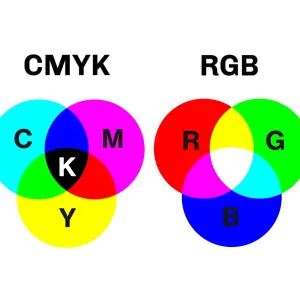
The Difference between CMYK and RGB Color Models
Read This Article

Printing Ink: What does “Heavy Coverage” mean?
Read This Article
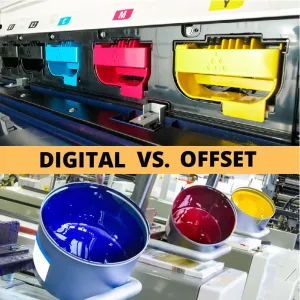
Which Process is Better? Digital Printing vs Offset Printing
Read This Article